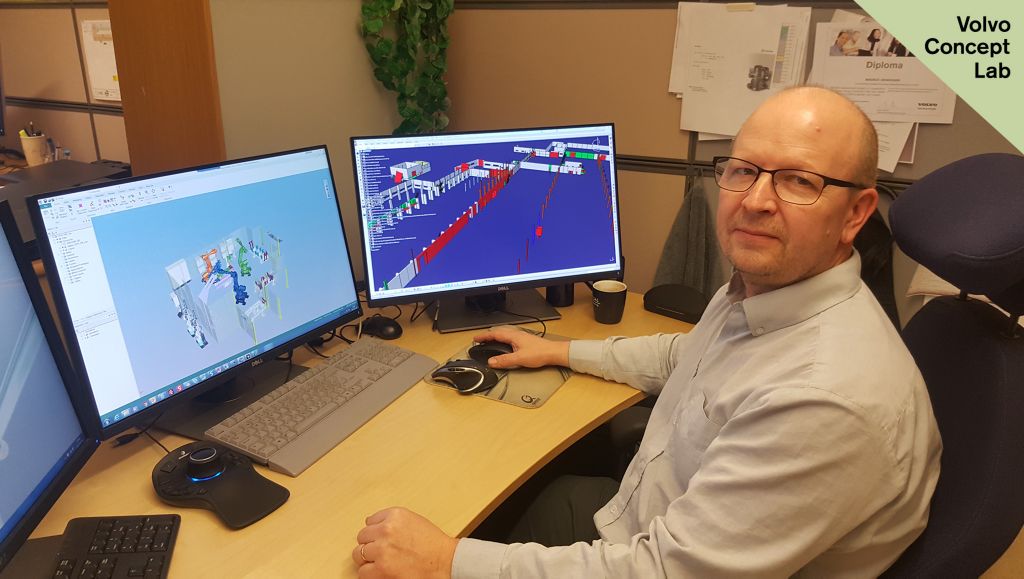Virtual twin plant shorten lead times


The project aims to develop standards and software tools for virtual engineering and virtual preparation and operation of digitized factories.
The cab plant in Umeå, Volvo's Cab Competence Center and of the Volvo Group's highest automated factories, is one of the plants that work with virtualization.
"We have already begun to run sharp control code from manufacturing in a virtual environment," says Magnus Johansson, Umeå plant. "Now we are taking the first step in creating a virtual twin environment in a whole processline where we can prepare for production changes with great precision and among others minimize run-times. This requires that the digital copy, to the smallest detail, have consistency and behave like real life. "
With a precise virtual twin of a production cell - with logic, mechanics, security, electricity, patterns of movement, speed, sensors and all connected devices - you can test the entire functionality in product quality, resource use, maintenance, process stability and cost.
During each of the years of the project will be built a demonstrator in Umeå factory showing possibilities, the first will be completed in 2017.
Volvo's partners in the project are Umeå-based Simulation Company Algoryx, Components Company Schneider Electric and Chalmers. Or, in other words, the large companies, the cutting-edge company and the Academy in a fruitful cooperation.
Facts
Algoryx, Chalmers, Schneider Electric and The Volvo Group has entered into a collaboration in an EU project that aims to develop new engineering tool for virtual preparation and operation of digital factories. The project is part of the comprehensive EU project ENTOC ( "Engineering Tool Chain for Efficient and Iterative Development of Smart Factories"), which in Sweden is financed by industrial partners as well as by Vinnova and is included in the EU ITEA3 programs. The project is led by the German Daimler and also includes EDAG, IFAK, Festo, Tarakos, EKS INTEC and TWT.